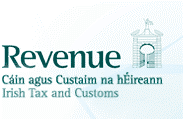
In October 2023, the Supreme Court delivered an important judgment on the key factors to be considered to determine whether a worker is an employee or self-employed for income tax purposes. The Court decided that the question should be resolved using a five-step process.
Revenue then published guidance in May 2024 explaining the new five-step decision-making framework. It encouraged all businesses to review the nature of any contractor-type arrangements and consider any implications the Kharshan judgement may have for them.
Revenue have recently announced Karshan Disclosure Opportunity Guidance, an opportunity for employers to correct any payroll tax issues in respect of 2024 and 2025, arising from bona fide misclassification of employees as self-employed workers without penalty or interest. The deadline for submission of disclosures to avail of these favourable settlement terms is 30 January 2026.
Businesses who engage contractors should self-review all arrangements with contractors in light of the new five-step framework to see if a disclosure is required before the 30 January 2026 deadline.
If you require our assistance with this, please contact us.


